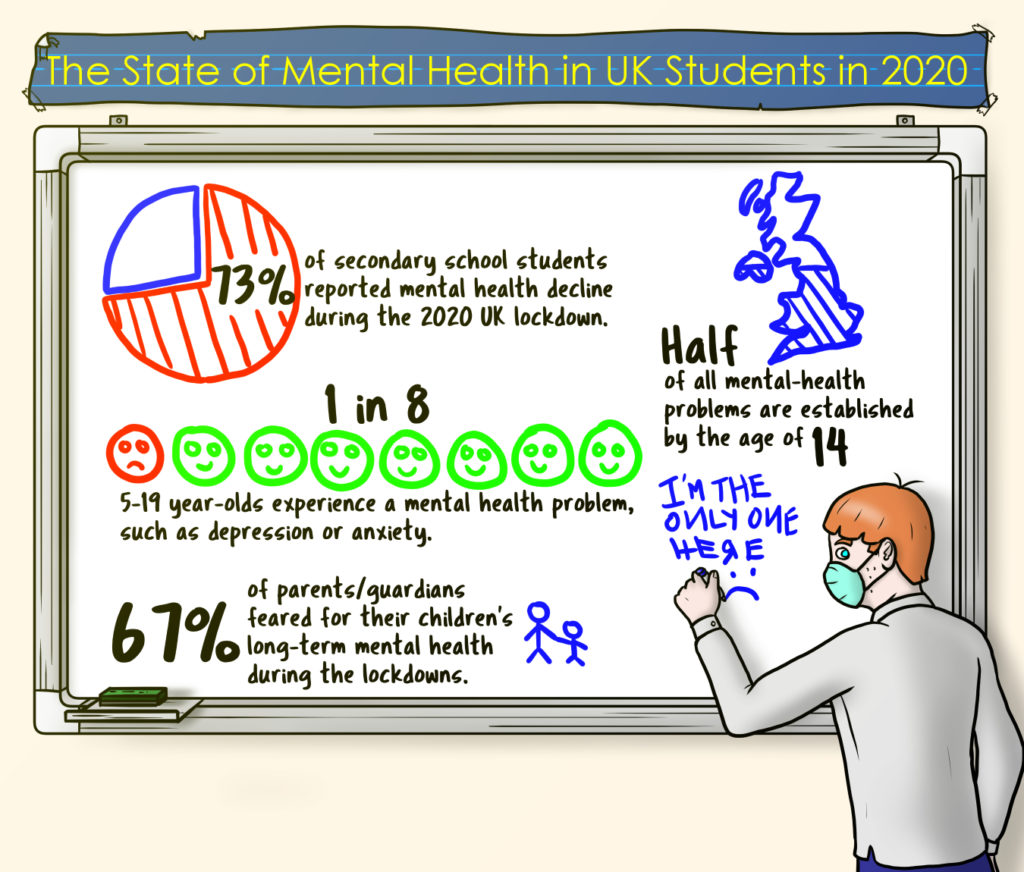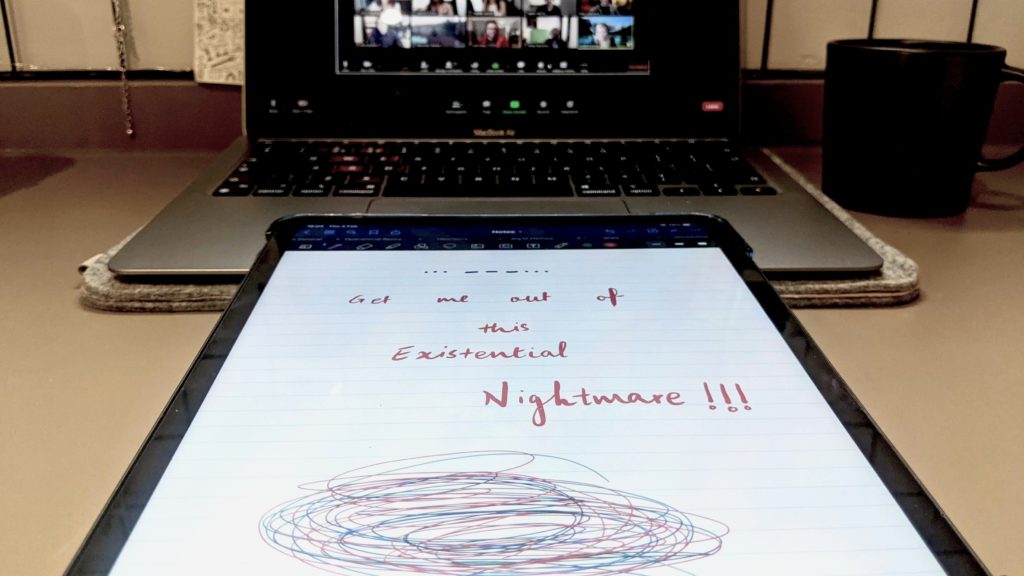“Zoom fatigue” is real and it’s affecting thousands of students’ mental health
Students across the UK are struggling with online learning during the pandemic. Many have reported the negative impact of the lockdown and online classes on their mental health.
Prime Minister Boris Johnson recently announced that the schools in the UK will not reopen immediately after the February half-term. Face-to-face teaching for secondary schools and colleges will not resume until 8th March, 2021 at the earliest.
The announcement on the 4th January that schools would be closing due to a national lockdown, a day before students were due to be returning was a blow for both teachers and students.
Teachers rapidly changed their lesson plans with Anna (name changed), a secondary school teacher, switching to Microsoft Teams to deliver lessons. Anna had some issues at the beginning with Microsoft teams, which exploded in popularity during lockdown. Growing from 44 million active users in March 2020 to 75 million by April and reaching 115 million active users by November.
“We found a lot of glitches on day 1 of the first week as Microsoft servers were loaded with traffic,” said Anna. “Some pupils had issues joining live check in or lessons.”
No matter how hard teachers work to ensure engaging lessons for students, many state that online learning is an incredibly isolating experience. All the students interviewed expressed how they find online learning incredibly isolating.
James, a 17-year-old student, misses learning with others and being able to ask for help when he needs it. “I have obviously spent my whole school life learning in person,” said James. “So it’s taking me a while to get used to isolated learning.”
This isolation can have adverse effects on student’s mental health too. Anna said: “I’ve seen a few get worked up and anxious.” Mind found that nearly three quarters (73%) of students saw a decline in their mental health during lockdown.
“Some [students] are definitely finding it more challenging, especially students with additional support needs who would normally have classroom assistant support… and can’t access this remotely,” said Anna.
YoungMinds surveyed 2,111 youngsters with mental health history out of which almost a quarter of respondents said that there was less mental health support in their schools after the pandemic.

Many students are also experiencing a phenomenon known as ‘Zoom fatigue’, which plays a large role in their decreasing mental health and productivity. ‘Zoom fatigue’ refers to the tiredness, and burnout associated with the overuse of virtual platforms such as Zoom and Microsoft Teams.
BBC Worklife spoke to Gianpiero Petriglieri, an associate professor at Insead, who said: “Video chats mean we need to work harder to process non-verbal cues like facial expressions, the tone and pitch of the voice, and body language; paying more attention to these consumes a lot of energy.”
Experts such as Petriglieri suggest that the only way to minimise Zoom fatigue is to take regular breaks. Yet this is not often possible when young people have lessons all day.
“I can spend all day in class but after a few hours on Microsoft Teams I’m absolutely exhausted, staring at a screen every day has become so dull,” said James.

If you are a parent struggling with online learning or are concerned about your child’s mental health, you can click on these resources.

